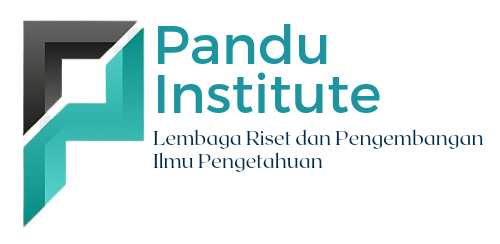Kedudukan Hadis dan Istinbath Hukum Lembaga Bahtsul Mas’ail Nahdlatul Ulama
Abstract
The Koran and Hadith as the main sources of Islamic law are limited in number, but the things that arise in life are complex and unlimited. To deal with problems that are more complicated and full of novelty, sometimes there are no specific laws in the Koran and Hadith, so ijtihad is needed for this situation. Through the Bahtsul Masail forum, Nahdlatul Ulama always actively schedule discussions about actual problems by optimally trying to solve the deadlock in Islamic law resulting from the continuous social development of society without knowing boundaries, while textually there is no basis for it in the Qur'an. and Hadith, or there is a basis for it but the expression is not clear. Therefore, the Bathsul Masail institution must have a method for carrying out ijtihad. The Legal Istinbath Methodology of the Bahtsul Masail Nahdlatul Ulama Institute has three method approaches arranged hierarchically, namely the qauli method approach, the ilhaqi method, and the manhaji method. However, to answer various concerns regarding the absence of an operational method of legal istinbat, and one that can represent the model of the manhaji school of thought, Nahdlatul Ulama at its 33rd Congress in 2015, through the Bahtsul Masail al-Diniyyah al-Maudu'iyyah Commission formulated a method of istinbat al-ahkam . Operationally it is structured into three methods, namely the bayani method, the qiyasi method, and the istislahi or maqasidi method.
Downloads
References
Abdalla, Ulil Abshar, “NU dan Generasi Baru” Dalam Dinamika Kaum Muda” ,jakarta: PP-IPNU, 1997.
al-Allah, al-Qazwa>ni>, Muh}ammad ibn Yazi>d Abu> ‘Abd, Sunan Ibnu Ma>jah. Juz II. Bai>ru>t: Maktab al-Ma’a>rif Linats\ir wa al-Tauzi>’. 1417 H.
Alauddin, Mughalatai bin Qali>jin bin Abdullah al-Bukjari al-Misri> al-Hakri al-Hanafi Abu Abdullah, Ikma>lu Tahzi>b al-Kama>l fi> al-Asma>I al-Rija>l, juz III, al-Faru>q al-Hadi>si li al-Taba>ati wa al-Nasyri 1422 H.
al-Ba>i‘I, Abu> ‘Abdullah al-Ha>kim Muhammad bin ‘Abdullah bin Muhammad bin Hamdawiyyah bin Nu>‘i}m bin al-Ha>kim al-Dha>bi{ al-T}ahama>ni al-Naisabu>ri al-Ma‘ru>fi ba> bini, Mustadrak ala> al-Sha>hihai>n, juz I, Bairut: Da>r al-Kutubi al-‘A
al-Khatib, Muhammad Ajjaj, Ushul al-Hadis terj Qodirun Nur dan Ahmad Musyafiq, Cet; IV, Jakarta: Gaya Media Pratama. 2007.
Amin, M.Masyhur, NU & Ijtihad Politik Kenegaraannya, Cet; I, Yogyakarta: al-Amin, 1996.
Asy’ari, K.H.M Hasyim, Sang Kiyai Fatwa, K.H.M Hasyim Asy’ari Seputar Islam dan Masyarakat, Terj: Jamal Ma’ruf Asmani.
Bruinessen, Martin, NU Tradisi, Relasi-relasi Kuasa Pencarian Wacana Baru, Cet; I, Yogyakarta: LKIS. 1994.
Dhofier, Zamakhsyari, Tradisi Pesantren, Studi Tentang Pandangan Hidup Kiyai, Jakarta: LP3ES. 1984.
Fattah, Munawwir Abdul, Tradisi Orang-orang NU, Cet; III, Yogyakarta: Pustaka Pesantren LKIS 2012.
http://forum.nu.or.id/viewtopic.php?f=5&t=626 diakses tanggal 25 November 2009.
Masyhuri, Masalah Keagamaan Hasil Mu’tamar NU, Surabaya: Dinamika Press.1977.
Muzadi, Abdul Muchith, Mengenal Nahdlatul Ulama’, Cet; IV, Surabaya: Khalista, 2006.
Triwulan, Titik, dan Efendi, Jonaedi, Membaca Peta Politik Nahdlatul Ulama’ Sketsa Politik Kiyai & Perlawanan Kaum Muda NU, Cet; I, Jakarta: Lintas Pustaka.2008.
Zahro, Ahmad, Tradisi Intelektual NU Lajnah Bahtsul Mas’ail 1926-1999, yogyakarta: LKIS Yogyakarta 2004.







.png)







